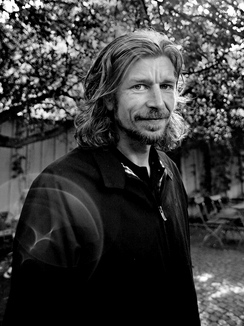Norwegian author Karl Ove Knausgård was hailed as a genius during his New York book tour last week, marking the US release of his My Struggle (Min Kamp) series. Esteemed magazines and noted authors were among those singing his praises, leaving Knausgård stunned by how many had identified with his small-town Scandinavian upbringing.

The My Struggle series is comprised of six autobiographical books which caused controversy when they were released in Norway. The series’ title bears a close similarity to Hitler’s Mein Kampf, and contains highly personal revelations about Knausgård’s childhood in southern Norway and his relationships with his ex-wife, children and other friends and family that many felt went too far.
The books were nevertheless hugely successful in Norway and have now won Knausgård a new fan base in the US, reported newspaper Aftenposten. The first book was released in 2012, and volumes one and two sold about 40,000 copies. Knausgård really gained traction with the release of book three this summer, making him a literary sensation.
“I fell into the first two books of My Struggle as if I were falling into a malarial fever,” wrote New York Times reviewer Dwight Garner. “I did little else for four days except devour them, leaving email unanswered, dogs unwalked, dishes piling up in the sink. The steady headlamps of his prose stun and mesmerize you, as if you were a lumbering mammal caught in the middle of a highway.”
“He is contemporary fiction’s alchemist of the ordinary,” Garner said. “Few artistic projects of our era feel more worth attending to.” TIME magazine called Knausgård “Norway’s Proust” and The New Yorker has also written about the “Knausgård phenomenon.” Acclaimed authors Jeffrey Eugenides, Jonathan Lethem and Zadie Smith have all raved about his work.
Book talk
Smith was part of the literary conversation with Knausgård in a Soho bookstore last Thursday. About 120 sat in the audience, and a further 200 watched the talk on a big screen in a room upstairs. She told Aftenposten his books were “like crack,” and it had been fun to meet the Norwegian who had become such a huge author.
After the intimate, self-critical book talk, Knausgård signed books for those who had queued outside the store to see him. First in line was Ronny Narvaez, who traveled from Canada for the talk. “He writes so well about the everyday things, while managing to bring out the sublime in the banal,” Narvaez said. “I recognize so much from my own life in these books, both about being a father and being a child yourself. The books also help me with things that have happened in my own family.”
Knausgård told Aftenposten he hadn’t thought American readers would relate to his Scandinavian upbringing. “But they have exactly the same reactions as at home,” he said. “Although a lot is different, people have children themselves, and that demands just as much here as with us. So it seems what I write is recognizable for many.”
He said it was bizarre to have become so influential and sought after. “I know in my head that the readers exist, that people talk about the books,” Knausgård said. “But I cannot relate to it. Therefore it is very strange to experience something like this, where people come to book signings and have a relationship with me because of what I have written.”
“But I would not say that it’s surreal. Before it was (local Kristiansand newspaper) Fædrelandsvennen at the library in Arendal. Now it’s the New York Times in a bookstore in Brooklyn. It is the same – the same questions, the same readers. Everything is just bigger.”
Repressed success
“Of course this is fun,” said Knausgård, saying the hype in New York had been about the same at the height of his success in Oslo. “But I have to repress it. Otherwise I would not have survived.”
He said the struggle described in his books has not been in any way alleviated by his success. “The writing process himself is healing,” he mused. “But then it’s back to the start when you’ve finished writing. When there’s nothing that has changed.”
The 45-year-old said he’s thinking about a new book, but has not started to write anything. Knausgård also said he was preparing for the time in the near future when his children would be old enough to read what he had written. “I must tell them that this is for something. I was around 40 when I finally started to understand my own parents. I must hope that my children can also at one time understand why I made the choices I did. It is not something you can do when you’re 17, somehow.”
newsinenglish.no/Emily Woodgate

